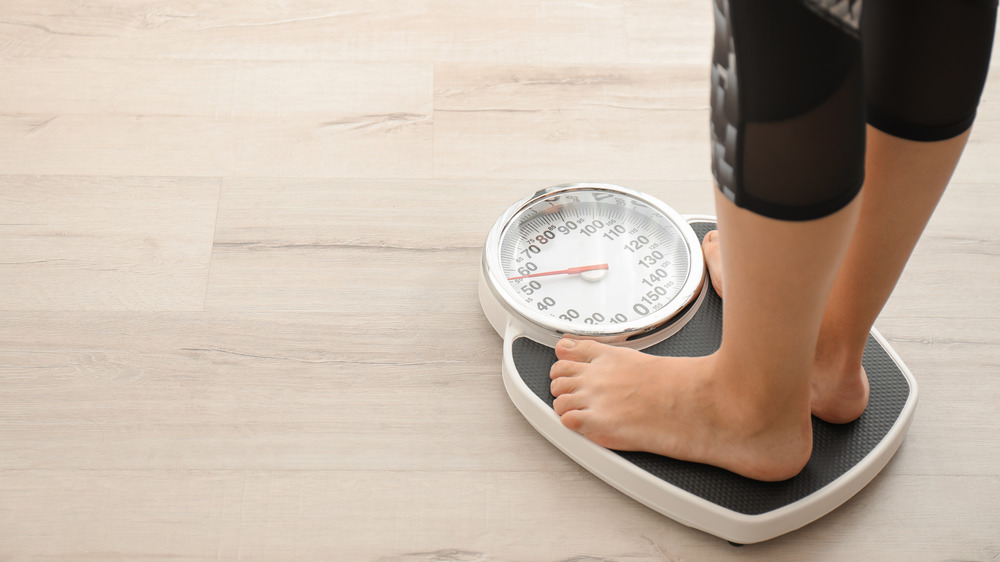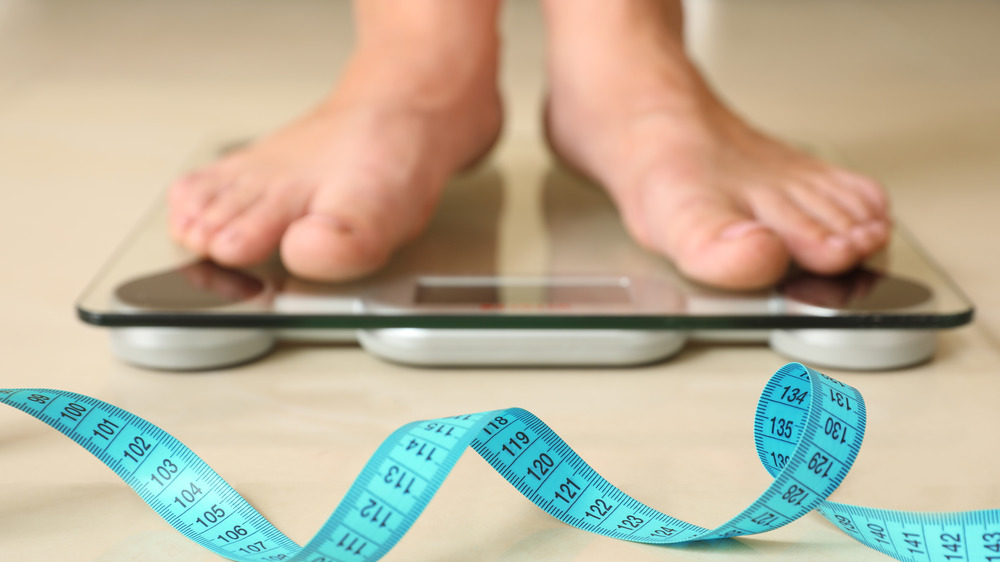What Does It Mean To Be In A Calorie Deficit?
You've likely seen the term calorie deficit or caloric deficit when reading about how to lose weight. But what does it mean to be in a calorie deficit, and how can you safely get there and lose weight in a healthy way?
A calorie deficit simply means that you're burning more energy — calories — than you're taking in. When you balance out the amount of calories you burn with the amount of calories that you eat and drink, you either end up with a calorie surplus, meaning you've eaten more than you've burned, or a calorie deficit, meaning you've burned more than you've eaten. A calorie deficit, also known as an energy deficit, leads to weight loss (via Verywell Fit).
You don't just burn calories through exercise: You burn them as you digest food, as your body regulates its temperature, and as you go about the small movements that make up daily living, like cooking, cleaning, and even working on the computer. You can calculate your basal metabolic rate — the calories you require to function optimally, based on your age, weight, gender, and daily activity level — using an online calculator like this one from ACE Fitness.
How big can your caloric deficit be?
Experts tend to agree that for most people, a calorie deficit of around 500 calories per day — 3,500 in a week — is a sustainable, safe way to lose weight gradually. In that deficit, your body begins using your stored fat as fuel. At most, you can try to create a deficit of 1,000 calories per day, which would lead to two pounds of fat loss per week, but any more than that is considered dangerous (via Women's Health). Regardless of what type of diet you're on — Paleo, vegan, keto, Mediterranean — you can create a calorie deficit.
You can reach a caloric deficit in two ways: By increasing your energy output, or by decreasing your energy input. Simply put, that means you're either exercising more or eating less. Experts agree that a combination of the two is the best way to sustain meaningful weight loss, since it's difficult to exercise long enough to burn a large amount of calories. But, after a certain amount of time eating less calories than you're burning, your body will slow your metabolism and actually drop the rate at which it uses energy (via Harvard Health Publishing).
Signs that you're cutting too many calories
As previously mentioned, eating too few calories can slow your metabolism. Yet getting too few calories on a routine basis can affect our body in a number of other ways too. According to WebMD, very low-calorie diets can induce side effects — including fatigue, nausea, diarrhea, and constipation. In more serious cases, some people may develop gallstones as a result of the body beginning to break down fat as an energy source. Additional signs that one is not getting the calories their body needs include hair loss, dizziness, and headaches (via SFGate).
Cutting too many calories can also increase one's risk for certain health conditions, reports Healthline. This can include everything from the common cold to malnutrition and fertility issues. Therefore, it's important to maintain a healthy, balanced calorie intake. Experts state that women should consume at least 1,000 calories per day and that men should consume a minimum of 1,200 calories daily (per SFGate). If you're taking in even lower amounts of calories due to a health condition, very low-calorie diets should be supervised by a physician.



